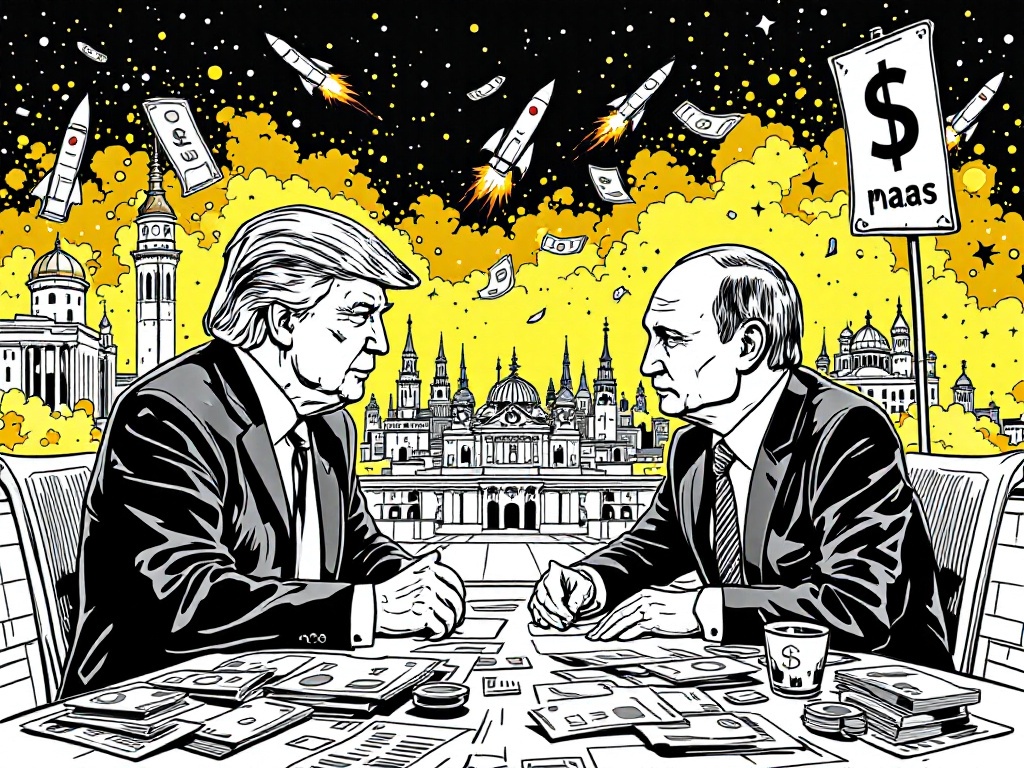Trump Seeks Swift Ukraine Peace Agreement Amidst Russian Missiles

Washington D.C., Friday, 25 April 2025.
President Trump presses for a peace deal with Russia and Ukraine, but tensions rise following Russian missile strikes on Kyiv, challenging negotiations and Trump’s diplomatic strategy.
Diplomatic Challenges and Political Stakes
The efforts by President Trump to secure a peace deal during his initial 100 days in the White House face significant hurdles as Russian missile strikes have intensified on Ukraine’s capital, Kyiv. This development considerably strains the diplomatic overtures, magnifying the complexity of negotiating terms that are amicable to both Ukraine and Russia. The U.S. government, led by special envoy Steve Witkoff, has been involved in intensive talks, but the atmosphere remains tense, especially after a significant missile and drone assault resulted in multiple casualties in Ukraine’s capital [1][2].
The U.S. Strategy and Stances
U.S. President Trump is applying increased pressure on both Russian and Ukrainian leaders to arrive at a conclusive peace agreement. The proposed peace deal reportedly includes recognizing Russia’s sovereignty over Crimea and offering Ukraine assurances against further territorial encroachments, a move also coupled with economic aid tailored towards rebuilding Ukraine. However, Ukraine’s President Volodymyr Zelenskyy remains steadfast in refusing to acknowledge any legal claim of Russia over Crimea, upholding Ukraine’s constitutional provisions [1][3]. The situation presents a delicate balancing act for U.S. diplomacy, with Vice President JD Vance indicating that the U.S. might retract its mediation if both parties fail to consent to terms [4].
European and Global Implications
The stakes are high, not just regionally but also in terms of global geopolitical dynamics. U.S.-backed peace efforts contrast with European leaders’ calls for sustained support for Ukraine alongside security guarantees, reflecting a broader hesitancy to capitulate to terms largely seen as favoring Russian objectives. The presence of Western delegates, including those from France, the UK, and Germany, marks international investment in a resolution, yet the diverging interests reflect potential barriers to a unified stance [5][6].
Future Outlook
As negotiations continue, the prospect of a swift resolution remains uncertain, with recent developments casting doubt on the feasibility of peace. While Trump voices a mix of impatience and hope through social media and diplomatic channels, the lack of compromise witnessed so far makes the deadline for a proposed agreement increasingly tenuous. This underscores a larger narrative of diplomatic fragility amid longstanding grievances, eliciting skepticism from international policy experts about the potential for prolonged regional stability [7][8].
Sources
- www.cnbc.com
- www.npr.org
- www.cnn.com
- www.theguardian.com
- www.cnn.com
- www.cnn.com
- www.cfr.org
- www.npr.org